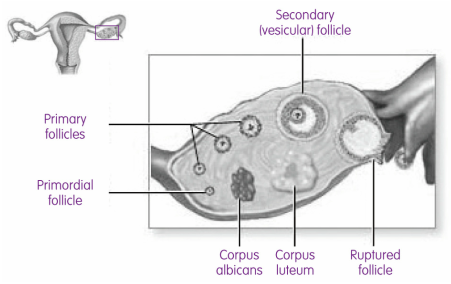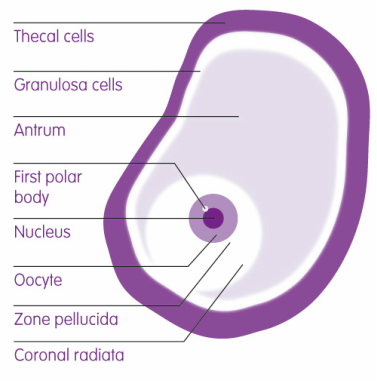WHAT IS PCOS?
PCOS affects 1 in 10 women in the UK |
Polycystic Ovary Syndrome (PCOS) is an endocrine disorder whereby polycystic ovaries are one of an array of possible symptoms caused by an underlying hormone imbalance. It was first ‘discovered’ in 1935 by Doctors Stein and Leventhal, so for many years it was known as the Stein-Leventhal syndrome.
The term polycystic ovaries describes ovaries that contain many small 'cysts' (about twice as many as in normal ovaries), usually no bigger than 8 millimetres each, located just below the surface of the ovaries. The ‘cysts’ in polycystic ovaries are not true cysts. They are not full of liquid, they do not get bigger or burst, they do not require surgical removal and do not lead to ovarian cancer. They are actually follicles that have not matured to be ovulated (see image opposite), which is why the name of the condition is confusing. It was originally thought that these follicular cysts caused the condition but we now know they are one of the symptoms and not everyone will get them. Due to the confusion with the name of the condition, both with healthcare professionals and the general public, there are now discussions around the potential for changing the name. This is an international process in which Verity is playing an integral role in the consultation and discussion surrounding any changes. Polycystic ovaries (PCO) are very common, affecting around 1 in 5 (20%) women and AFAB individuals. Polycystic ovary syndrome (PCOS) is also very common, affecting 1 in 10 (10%) women and AFAB individuals, although this can vary from country to country. Polycystic ovary syndrome (PCOS):
Although PCOS is treatable and the symptoms can be managed, it cannot be cured. |


